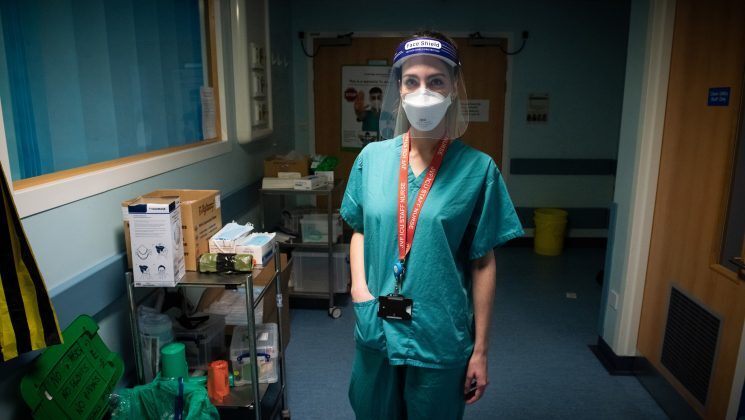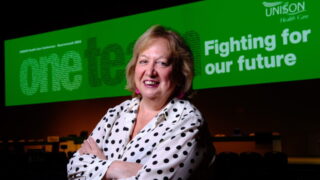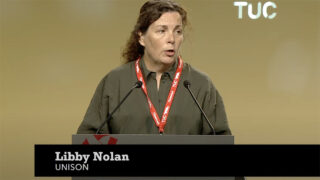Image © Marcus Rose
It’s almost three years since the the start of the first COVID-19 lockdown, on 23 March 2020. It was the start of a long, painful road for UNISON members, many of whom were on the frontline of the fight against the virus, while – like the rest of the nation – trying to keep themselves and their families safe.
Along with bereaved families groups, UNISON was instrumental in calling for a public inquiry into the government’s often controversial handling of the pandemic. A motion passed at the Special Delegate Conference in 2021 called for the inquiry to hold government to account, give members a platform to share their experiences and ensure the right lessons are learned.
As prime minister, Boris Johnson subsequently set up an independent inquiry at the end of 2021, and appointed Baroness Hallett as its chair. In 2022, the inquiry team consulted over its terms of reference and set out the proposed scope and shape of its work.
In broad terms, the inquiry has two objectives: to set out exactly what happened, and to ensure that appropriate lessons are learned.
The inquiry will be modular, with separate modules dealing with different aspects of the pandemic. The first three modules have begun their preliminary work, dealing with:
- UK preparedness for the pandemic, investigating whether the country was adequately ready for such an eventuality;
- Decision making by central government once the pandemic started – submodules will address the issues from the perspectives of Scotland, Wales and Northern Ireland;
- The way in which the health service responded to COVID-19 and how it was impacted, including the impact on health care workers; it will also consider Long COVID diagnosis and support.
Public hearings for module 1 are set for May, with the others expected to also take place this year.
The inquiry has recently indicated that there will be specific modules on PPE, social care, education, health inequalities, public services and frontline workers.
In parallel with the modular structure, the inquiry is establishing a listening exercise called Every Story Matters. This is supposed to enable any member of the public to share with the inquiry what happened to them during the pandemic. A website has been set up to facilitate this, although Every Story Matters will also involve physical meetings.
How UNISON is engaging with the inquiry
UNISON made a full submission to the consultation on the draft terms of reference. The union made it clear that the inquiry must address issues around supply of PPE, the way in which austerity and fragmentation of public services made it harder for them to respond, the impact of poor sick pay provision, the disproportionate impact of the pandemic on Black and disabled workers, and those on lower incomes who could not work from home.
Although still not perfect, the union is now confident that the final terms of reference and the structure of the inquiry cover the ground that is of most importance to UNISON members.
The TUC has secured core participant status for the initial three modules on behalf of the trade union movement as a whole. This gives it the ability to propose witnesses and questions, through counsel, on behalf of all trade unions. UNISON is working closely with the TUC, providing evidence and analysis that will inform the TUC’s own official witness statements.
It is expected that UNISON will receive a formal request to provide an official witness statement for a number of modules.
We need to receive your evidence
If branches have information or written evidence relevant to the inquiry, they are asked to send a short summary of what they have to our inbox Covid19inquiry@unison.co.uk. This will be added to our archive and database, which includes material sent in by branches and regions following initial calls for evidence in 2020. We will contact you if we need actual copies evidence and documents.
All members submitting evidence should be reassured that any information submitted to us will be treated in strictest confidence. Where appropriate, members of staff will contact you for further details.
In addition, UNISON is making representations to the inquiry team to ensure that the Every Story Matters component of the inquiry works for our members – that the process is properly accessible and that members’ experiences are not sanitised before being submitted to the inquiry’s chair.
Regular updates will be provided in the months ahead.






